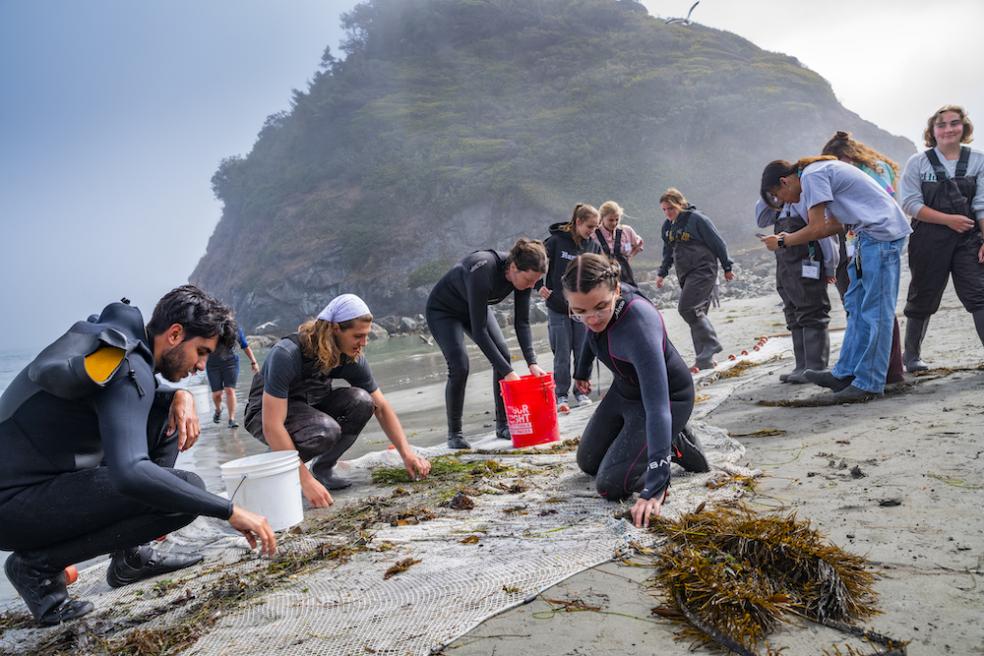
“This milestone reflects the extraordinary dedication of our faculty, staff, and students. Our Principal Investigators lead ambitious projects that advance discovery, creativity, and program innovation; work with impact far beyond Humboldt that prepares the next generation of scholars and professionals,” says Kacie Flynn, Associate Vice President for Research.
In the past year alone, Cal Poly Humboldt’s Office of Research & Sponsored Programs Foundation—which helps faculty and staff secure external funding—won 199 awards, totaling $58.7 million. These funds provide resources for transformative faculty projects and create paid positions in labs, field sites, studios, and community programs preparing students for graduate study and careers, including emerging fields like green technologies. At the Schatz Energy Research Center, for example, students are helping to advance off-grid energy projects both locally and abroad from Sub-Saharan Africa to right here in Humboldt County.
These funds also support Place-Based Learning Communities (PBLCs), which help students build a strong foundation before their first classes even begin.
Launched in 2015, PBLCs have grown into a campus-wide program serving all incoming students. Today, 14 communities support fields from health and business to the arts, engineering, and sciences, and also support students who enter undeclared.
Research shows PBLCs boost belonging and success. At Humboldt, first-year retention is 9% higher for PBLC students, and 11% higher for those from groups historically underrepresented in the sciences.
Funds also help support hands-on experiences in the Cultural Resources Facility (CRF), where students gain career training in archaeology, geographic information systems, site mapping, and related fields. A research hub and teaching lab, the CRF engages students across disciplines from geology to environmental science.
In 2023, the Department of Anthropology launched a groundbreaking partnership with agencies in North Macedonia to excavate a Bronze Age city. Humboldt teams helped date the site and are studying its acropolis to uncover its history. That partnership has since expanded to include other excavation opportunities for Humboldt students and researchers across Macedonia, including a 4th-century B.C.E. fortress.
“This is a once-in-a-lifetime discovery,” says Anthropology faculty research associate and Advisor Nick Angeloff. Using specialized CRF labs on campus like the Experimental Archaeology Lab and the Soils Lab, students are also analyzing soils and artifacts, contributing to research that’s reshaping the story of an ancient city.
The $1 billion milestone and the programs it supports underscore Cal Poly Humboldt’s deep commitment to a broadly defined, research-centered educational experience. That commitment was further recognized earlier this year, when Humboldt was designated a Research Colleges and Universities (RCU) institution by the Carnegie Classification—a prestigious framework that evaluates institutions based on size, research activity, and overall impact.
The designation not only honors the University’s research accomplishments, it signals even greater opportunities ahead for faculty leaders, students, and the communities they impact.
For more information, visit Cal Poly Humboldt’s Office of Research & Sponsored Programs at research.humboldt.edu.